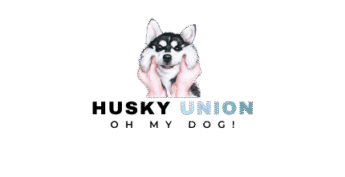If you’ve ever owned or spent time with a Siberian Husky, you know they have a lot to say. Unlike other breeds that bark or whine occasionally, Huskies are infamous for their howling. It’s one of their most charming and instantly recognizable traits. But why exactly do Huskies howl? And why do we find it so adorable?
As a proud Husky owner myself, I’ve come to embrace (and enjoy) the chorus of wails, whoops, and whines that echo through my home. Let’s dive into the fascinating reasons behind this behavior, why it tugs at our hearts, and what it says about their breed.
1. A Throwback to Their Wolf Ancestry
Huskies are genetically close to wolves. In the wild, wolves communicate through howling to locate each other, establish territory, or rally the pack. Your Husky might not be navigating snowy mountains, but their instincts remain. When a Husky howls, it’s tapping into thousands of years of pack behavior.
While barking evolved as a communication tool in domesticated breeds, howling remains deeply rooted in Huskies. It’s their preferred way of saying, “I’m here!” or even, “Where are you?”
2. Communication with Humans and Other Dogs
Huskies are known to be extremely vocal. Their howls, yips, and woo-woos are part of how they talk to us. They may howl to get your attention, to respond to your tone of voice, or even when you sing or play music. (Yes, Huskies are great duet partners!)
Interactive toys like this treat-dispensing puzzle or calming dog music speaker can keep your Husky entertained and reduce attention-seeking howling.
If you’ve got more than one dog at home, you’ve probably witnessed a Husky starting a group howl session. It’s not misbehavior! It’s their version of a staff meeting.
3. Expression of Emotion
Huskies are emotionally intelligent animals. They express joy, loneliness, anxiety, frustration, and excitement through their voices. A long, drawn-out howl could mean they’re bored or want company. A high-pitched yodel might mean they’re excited or playing.
When you come home after a long day, and your Husky greets you with an excited howl, it’s pure love. They missed you, and they want you to know.
If your Husky struggles when left alone, products like this calming dog bed or anxiety vest can offer comfort when you’re not home
4. Response to Environmental Sounds
You might notice your Husky howling at sirens, alarms, or even certain TV jingles. These sounds can trigger a natural instinct to respond. It’s as if they’re answering a call from the wild, even if the call came from a fire truck.
This behavior isn’t just entertaining; it’s also a reminder of how sensitive and responsive Huskies are to their surroundings.
5. A Need for Attention
Let’s face it: Huskies love the spotlight. If howling gets your attention, they’ll use it. Some even learn that a well-timed howl results in belly rubs, treats, or laughs from their humans. It becomes part of their communication toolkit.
It’s important, however, to differentiate between howling for healthy social interaction and howling out of stress or loneliness. Separation anxiety is common in the breed, and excessive howling may signal a need for companionship or mental stimulation.
Why We Find It So Adorable
Let’s be honest. When your Husky throws back its head and howls like a tiny wolf, it’s impossible not to smile. There’s something deeply expressive, almost musical, about it. Here are a few reasons we find it so endearing:
- It’s uniquely Husky: Not many breeds howl like Huskies do. It sets them apart in the most charming way.
- It feels like a conversation: Husky owners often say, “It’s like they’re talking to me.” And it’s true. Their vocalizations feel purposeful and directed.
- It reflects their personality: Each Husky has its own style. Some are dramatic tenors, others are goofy altos. Watching them express themselves so openly builds a stronger bond.
- It creates memorable moments: From silly howling competitions to bedtime duets, Husky howls become part of family life.
Managing the Howling
While it’s adorable, Husky howling can be loud and frequent. For apartment dwellers or neighbors with low noise tolerance, it might become an issue. Here are a few tips for managing it:
- Exercise and mental stimulation: A tired Husky is a quiet Husky. Make sure they get plenty of activity and puzzle toys.
- Routine and companionship: Consistent schedules and quality time reduce stress and boredom.
- Positive reinforcement: Reward quiet behavior and avoid scolding howling, which can backfire.
- Training: Huskies are intelligent and trainable. Use commands like “quiet” with consistent practice and rewards.
- For positive reinforcement, we use this clicker and treat pouch set to train ‘quiet’ cues consistently
What Your Husky’s Howl Might Be Saying
| Type of Howl | Possible Meaning |
|---|---|
| Long and drawn out | Loneliness or separation anxiety |
| Short, sharp howl | Excitement or demand for attention |
| Howling with tail wag | Playfulness or greeting |
| Howling with pacing or whining | Stress or boredom |
Consider investing in a camera if you want to monitor how your Husky behaves when you’re out! This smart pet camera with two-way audio helps us check in and even talk to ours when we’re away.
Learning your Husky’s unique sounds helps you understand them better and deepen your relationship.
Final Thoughts
Howling is one of the most iconic and lovable things about owning a Husky. It’s more than just noise; it’s language. It’s emotion. It’s personality. Whether your Husky is calling the pack, reacting to a siren, or just letting you know it’s time for a walk, every howl has its meaning.
And as a Husky parent, once you embrace the vocal nature of your dog, you’ll see it not as a nuisance, but as a beautiful expression of who they are. Just don’t be surprised when you catch yourself howling back.

